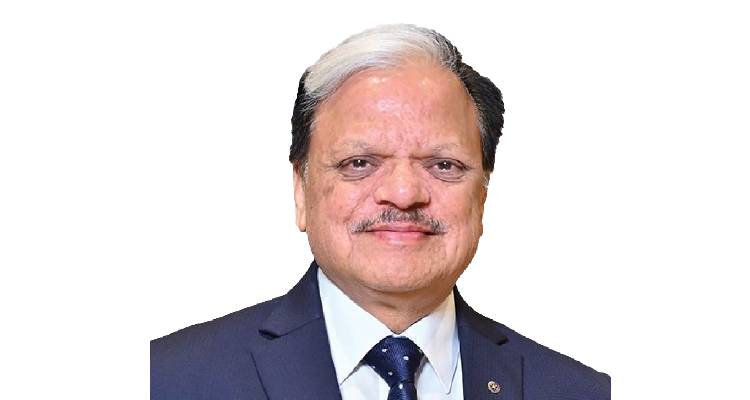
By Arunima Rajan

A healthcare system cannot weather the storms ahead if it neglects the health of the people standing on its front lines.
Every Doctors’ Day, India rains hashtags and bouquets on its white coat brigade but strip away the confetti and an awkward prognosis emerges. Who scrubs in for the doctors when burnout crashes into the ICU?
Vineet Mehta, CTO and co-founder of Alyve Health flips the stethoscope back on the medical workforce. “This Doctors’ Day, let’s discuss something we often forget: taking care of those who care for us. Doctors handle immense daily pressures. Workplace wellness programmes aren’t luxuries; they are essential. Mental health support and tools to manage stress can significantly strengthen doctors’ resilience, especially during demanding shifts. Providing practical resources, like gyms in hospitals or flexible working hours, enables doctors to prioritise their own health. When institutions invest in doctors’ well-being, they build committed teams and create better healthcare environments. And remember, doctors are human too. They need family time, rest, and space to recharge. Supporting their work-life balance is critical for their health and the quality of patient care.”
Dr Dhruv Chauhan, national spokesperson for the Indian Medical Association argues that token wellness drives cannot plaster over structural flaws. “Today is a day to salute the courage, silent strength, and persistence of doctors all over the world, to honour them for their act of service in saving a life. Working for 24 to 36 hours continuously and then continuing duty is not an easy task. That is why we are doctors. It takes a toll on our mental and physical health, without any support system or grievance cell to hear us, like we hear our patients. It takes guts to be a doctor,” says Chauhan.
Dr. Shantanu Chaudhry, consultant general and laparoscopic surgeon at Paras Health, underscores this idea. “As doctors, we spend our days guiding patients toward good habits, like balanced nutrition, enough sleep, and managing stress. Yet, we often forget to apply these principles to ourselves. Over the years, I’ve learned that maintaining consistent, small wellness habits is much more important than aiming for perfection. Before the rounds begin, taking even a moment for mindful breathing, a healthy breakfast, or a quick stretch can refresh us and improve our focus. By extending the same compassion we show our patients to our own well-being, we build resilience and bring our best selves to every consultation.”
Dr. Ajay Sharma, founder and chief medical director at Eye-Q Eye Hospitals, highlights the life changing impact doctors make every single day. “At Eye-Q, National Doctor’s Day is deeply personal to us because it is a moment to reflect on why we do what we do.
For our doctors, it is never just about performing a procedure; it is about changing the trajectory of someone’s life. Whether it is a farmer regaining sight to return to his field or a schoolgirl finally seeing the blackboard clearly, these moments remind us of the real impact behind every diagnosis and surgery. With over 6 lakh surgeries and 1 crore screenings across 30 centres, our journey has shown that skilled, compassionate doctors can bridge the healthcare gap in India’s smaller towns. This day is a celebration of that spirit, a quiet and relentless commitment to healing and dignity. I am proud to work alongside dedicated doctors at Eye Q who not only uphold the highest standards of care but also carry forward the belief that quality eye care should reach everyone, no matter where they come from.”
Standing amid the hum of robot arms and diagnostic screens at Paras Health in Gurugram, Dr. Ashwani Kumar Sharma, senior director of surgical oncology and robotic surgery, breaks down what’s next for medicine: “Technological advancements like AI in diagnostics and robotic surgeries reflect the remarkable progress in modern medicine. At the same time, efforts are underway to ensure that these innovations gradually reach every part of the country. Strengthening rural healthcare with digital infrastructure, upskilling medical staff, and supporting tech-driven care models can help accelerate this transition. Inclusive innovation has the potential to make quality healthcare truly universal.”
Yet even as robot arms ripple with promise, the real challenge lies beyond the metro’s glow. Dr. M.V. Padma Srivastava, chairperson of neurology, spells out what it will take to bridge that gap:”Doctors in smaller towns and rural areas continue to deliver care with dedication, even in environments where infrastructure is still evolving. Access to diagnostic tools, functioning labs, and well-connected referral systems is steadily improving, but there remains scope for further strengthening. Prioritising the development of primary health centres, streamlining supply chains, and ensuring the availability of essential equipment will help create a more resilient and responsive healthcare system.”
Strengthening buildings and machines only tells half the story. In busy wards, doctors race from bed to bed, often with barely enough minutes to spare. Dr. Amit Bhushan Sharma, director and cardiologist, warns that without enough hands-on deck, quality care slips through the cracks:”In many healthcare settings, especially high-volume ones, doctors manage a large number of patients in a single day. This naturally limits the time available for detailed consultations and consistent follow-ups. Strengthening the medical workforce is not just about increasing numbers; it’s also about creating an environment that supports quality care. Expanding medical education, improving working conditions, and encouraging service across regions can help build a system that works well for both patients and providers.”
Yet even when wards are staffed and supplies arrive on time, policy inertia can stall progress. Real-world insight must shape the rules that govern daily practice. Policy effectiveness relies on direct input from healthcare professionals. Dr. Manmohan Singh, vice chairperson of neurosurgery at Paras Health, notes: “India has built a solid framework of health policies over the years, all designed with the right intentions to improve access, quality, and outcomes. What we need now is to make those intentions visible in everyday practice. Doctors on the ground still face delays, staffing gaps, and procedural hurdles that take time away from patient care. Policies work best when they’re shaped by those who live them daily. Listening to medical professionals, simplifying systems, and making room for real-time feedback can turn plans into impact. Meaningful change begins when the people delivering care help shape how it’s delivered.
And it doesn’t stop at physical health. Sumit Safaya, head of operations at LISSUN reminds that mental health of care givers is equally important, “On National Doctor’s Day, we honour the pivotal role doctors play not just in physical healing, but also in shaping the nation’s emotional and mental well-being. At LISSUN, we are committed to complementing their efforts through a phygital model that integrates technology with on-ground expertise to make mental health support more accessible, structured, and stigma-free. Our child-focused initiative, Sunshine by LISSUN, furthers this mission by delivering multidisciplinary developmental care to children in need.”
Ultimately, Doctors’ Day serves as an essential reminder that prioritising doctors’ health and well-being is not merely beneficial but necessary for strengthening healthcare from within.

Got a story that Healthcare Executive should dig into? Shoot it over to arunima.rajan@hosmac.com—no PR fluff, just solid leads.




